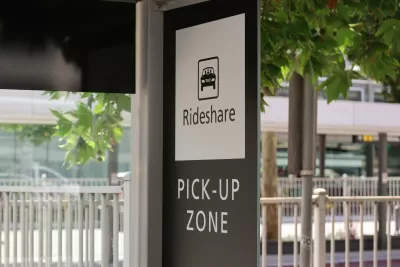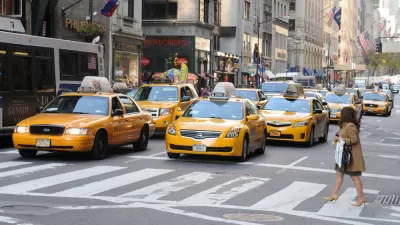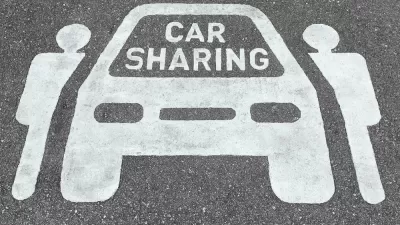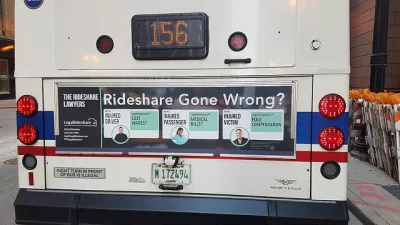From the beginning, TNCs like Lyft and Uber touted shared rides as their key product. Now, Lyft is ending the practice.

Commenting on Lyft’s decision to end shared rides, Jarrett Walker writes, “My impression was that they were overselling the product in contexts where it wasn’t appropriate, and they were offering the same discount to the person dropped off first — whose trip is exactly what it would have been if traveling alone — as to the person whose trip was being made much longer,” Walker explains. “They didn’t pay drivers enough to deal with the hassles, including customers not understanding the rules and poor relations between strangers sharing the car.”
Walker adds, “But shared-ride products are still needed, especially when demand appears all at once in high volume,” especially in situations like flights landing at small airports or concerts and events when single-ride taxis can’t handle a sudden spike in demand. “I’m disappointed Lyft couldn’t focus this product on that problem, grouping people only when their destinations were very close together, and thus creating a product that both customers and drivers could be believe in.”
FULL STORY: Lyft: The End of Shared Rides

Alabama: Trump Terminates Settlements for Black Communities Harmed By Raw Sewage
Trump deemed the landmark civil rights agreement “illegal DEI and environmental justice policy.”

Planetizen Federal Action Tracker
A weekly monitor of how Trump’s orders and actions are impacting planners and planning in America.

The 120 Year Old Tiny Home Villages That Sheltered San Francisco’s Earthquake Refugees
More than a century ago, San Francisco mobilized to house thousands of residents displaced by the 1906 earthquake. Could their strategy offer a model for the present?

Opinion: California’s SB 79 Would Improve Housing Affordability and Transit Access
A proposed bill would legalize transit-oriented development statewide.

Record Temperatures Prompt Push for Environmental Justice Bills
Nevada legislators are proposing laws that would mandate heat mitigation measures to protect residents from the impacts of extreme heat.

Downtown Pittsburgh Set to Gain 1,300 New Housing Units
Pittsburgh’s office buildings, many of which date back to the early 20th century, are prime candidates for conversion to housing.
Urban Design for Planners 1: Software Tools
This six-course series explores essential urban design concepts using open source software and equips planners with the tools they need to participate fully in the urban design process.
Planning for Universal Design
Learn the tools for implementing Universal Design in planning regulations.
Clanton & Associates, Inc.
Jessamine County Fiscal Court
Institute for Housing and Urban Development Studies (IHS)
City of Grandview
Harvard GSD Executive Education
Toledo-Lucas County Plan Commissions
Salt Lake City
NYU Wagner Graduate School of Public Service





























